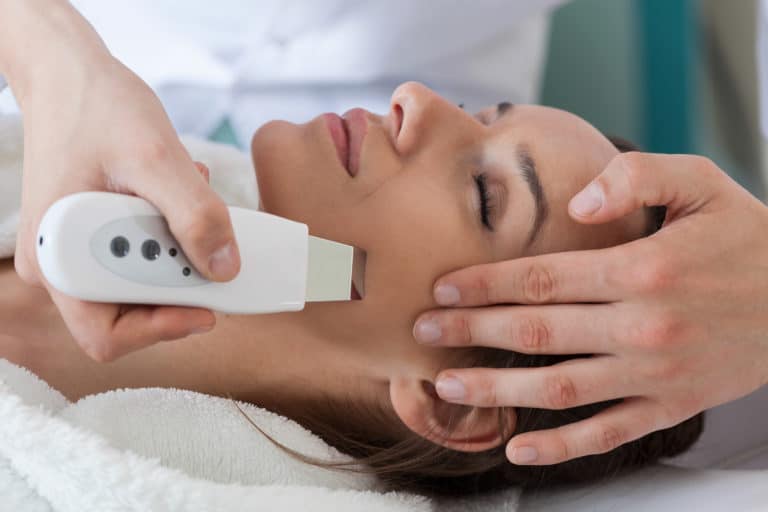Dermatological Efficacy Testing

Consumers of cosmetic products particularly focus on dermatological efficacy. They want to be sure that a certain product really does have the promised effects. Often, cosmetics of the same category are expected to have the same look and feel to them. Consumers want proof of a product’s dermatological efficacy. They want to be certain that the product can do whatever it says it can do on the packaging.
Dermatological efficacy needs to be proven to the consumers, especially because nowadays customers are well educated and increasingly skeptical if lofty words are used but the effects cannot be felt nor observed. The product’s look and feel addresses tactile and visual senses. They are important indicators to the consumers, as they want to find out for themselves that the quality is as expected. The time frame in which a customer expects to see results is getting shorter and shorter. The expectations soar high; and positive results have to become evident as soon as possible. Consumers are willing to pay a higher price for products that have a proven record of dermatological efficacy; as long as they can really see for themselves that their skin looks much younger and fresher within a short time span. In this case, dermatological efficacy studies validate that a certain product can preserve youthful skin, or can rejuvenate withered or damaged skin.
Scope of Dermatological Efficacy Testing
The scope of dermatological efficacy studies is wide. Today, many standardized methods and procedures are in place that are also being used by independent consumer magazines or investigation offices who conduct spot-check dermatological efficacy tests of cosmetic products.
Random dermatological efficacy testing of this kind produces information about the following areas of concern:
- Body products – 24-hour skins moisture-retention capacity, strengthening of the skin barrier
- Facial skin care products – anti-wrinkle effect, UV protection, skin moisturizing, refining of enlarged pores, control of skin lipids production (sebum) for excellent matting results, anti-pollution and anti-stress protection, periorbital dark circles, also known as dark circles under the eyes
- Sun care products – sunscreen or sunblock (UV protection), water-resistant, antioxidant protection
- Hair care products – shine, volume, split treatment, conditioning, repair, anti-dandruff effect, stimulating new hair growth, remedy against greasy hair
- Deodorants – sweat reduction and odor reduction for X hours, non-irritant effect on shaved armpits
- Hand care products – skin moisturizing, reduction of age spots, strengthening of nails and softening of cuticle
- Cosmetic foot and leg care (e.g. pedicure, foot and nail care products) – remedy against heavy and tired legs, odor reduction, skin moisturizing
- Shower and Bath products – cleansing, cooling, refreshing, and energizing effects, body peeling (that exfoliates dead skin cells), calming/soothing effect
- Special care products – cellulite reduction, stretch marks, skin softening and prevention of ingrown hair, reduction of body hair growth, protection against environmental toxins
Dermatological efficacy testing isn’t only limited to the above mentioned categories. The possibilities are almost limitless. Whether or not dermatological efficacy tests can be carried out successfully depends on whether enough test persons can confirm the desired effect or whether a substantial effect can be obtained at all.
For each and every product, a general offer should be made that is backed up by valid testing, so that customers will receive a dermatologically efficacious product that they will like to use, and use regularly.
The risk of making promises and not being able to deliver, should be taken seriously by cosmetic manufacturers because negative reports on the World Wide Web can be critical. Many consumers use social media platforms to voice personal experiences and critique that can quickly find a great following online.
We can provide you with professional assistance by organizing and conducting dermatological efficacy tests for you so that you can be all the more certain that your efficacy claim is based on and validated by appropriate testing.
Often, we are able to join hands with the proDerm Institute of Applied Dermatological Research that is located in the same business compound as we are: in the shopping and business centre in Schenefeld near Hamburg. Whenever clients make use of our services as well as proDerm’s services, our services gain an extra edge because we can closely monitor the studies due to our direct on-site connection.
We also cooperate with Odournet in Kiel. In one case, we had to conduct test sets related to odours (smells). In close collaboration, we produced outstanding results. The quality of efficacy testing would not have been the same if we had only applied standard testing that merely stick to basic efficacy testing methods and don’t move beyond that. Going the extra mile to get best results is part of our company philosophy.